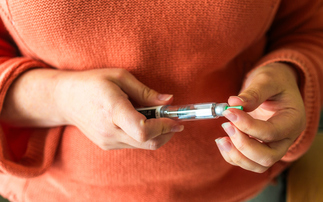At risk women across England and Wales could be given a daily pill to prevent breast cancer.
Updated guidance by the National Institute for Health and Care Excellence (NICE) says the NHS should give tamoxifen or raloxifene to women with a family history of cancer because the drugs can help stop them getting breast cancer if they are taken for five years.
Roughly 50,000 women and 400 men are diagnosed with breast cancer each year in the UK, making it the most common cancer in the country. One in five will be associated with a family history of the disease.
Professor Mark Baker, director of the Centre for Clinical Practice at NICE, said: "People are considered to have a family history of cancer if a number of their relatives have lived through, or died from, certain cancers like breast, ovarian or prostate.
"Currently, if someone has a family history of cancer, there are two options. If they are tested and are found to have a genetic reason for their family's cancer history, they may be eligible for annual screening so that any tumour will be detected early on.
"Or, they can opt for surgery to remove their breasts.
"These genetic mutations can also cause ovarian cancer so in some cases women may also decide to have their ovaries removed. This is major surgery and can be very traumatic for those involved.
"Those with a ‘moderate' or ‘high' risk of developing breast cancer because of their family history but who have not had the disease themselves can now be offered tamoxifen or raloxifene for five years to prevent it.
"Although neither drug is licensed as a preventative treatment in the UK, clinical evidence shows they are an effective option for many women and could be preferable to surgery."
The updated NICE guideline also calls for more men and women to be tested for genetic mutations that cause cancer and can be passed down through families.
It says the NHS should offer testing to otherwise healthy people if it's likely they have a genetic mutation and have no living relative with cancer who could be tested instead.
The updated guideline on familial breast cancer is now available from the NICE website.
While not mandatory, NICE clinical guidelines are regarded as best practice and the NHS is encouraged to follow the recommendations as set out in the guidance.











